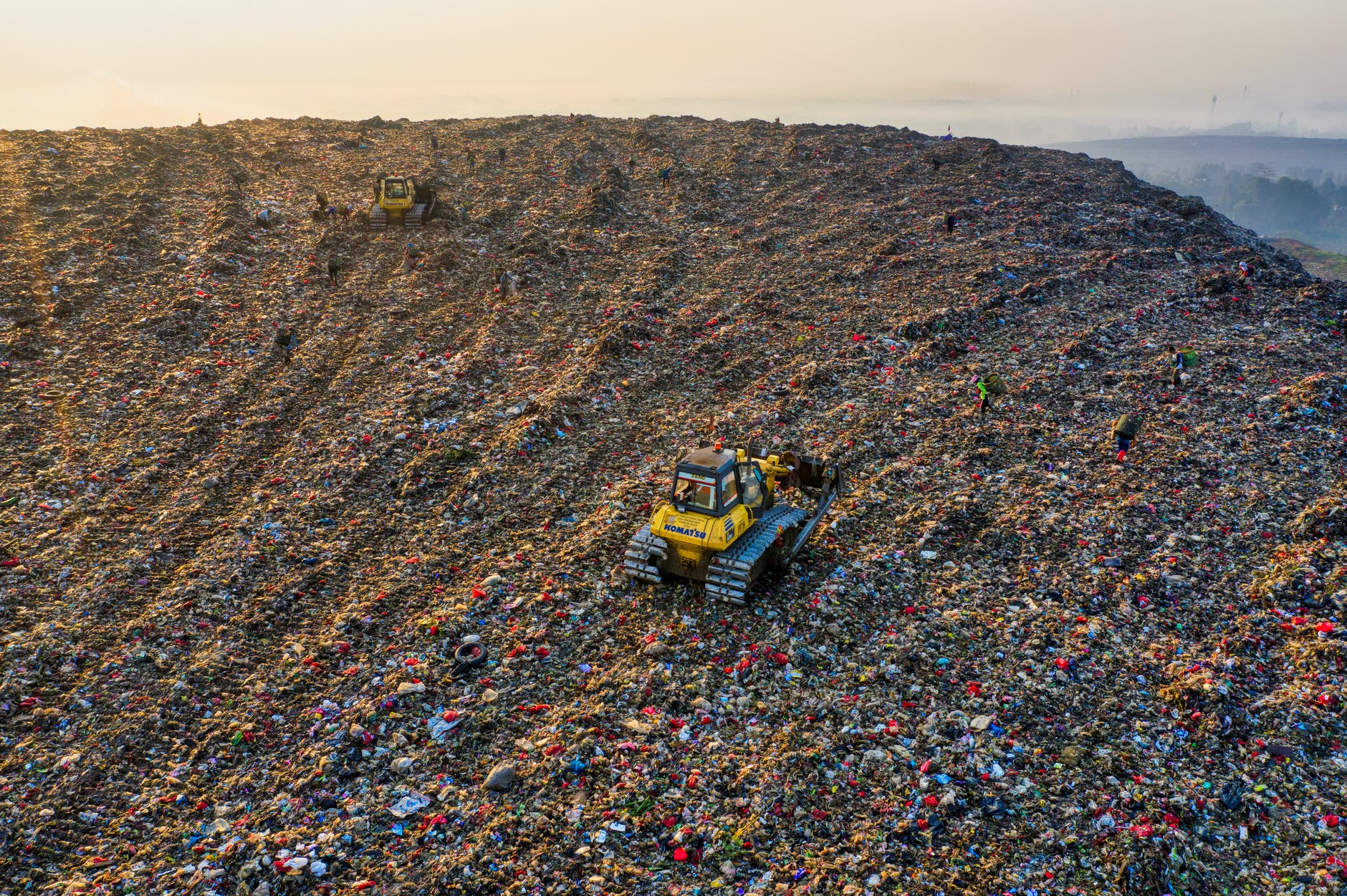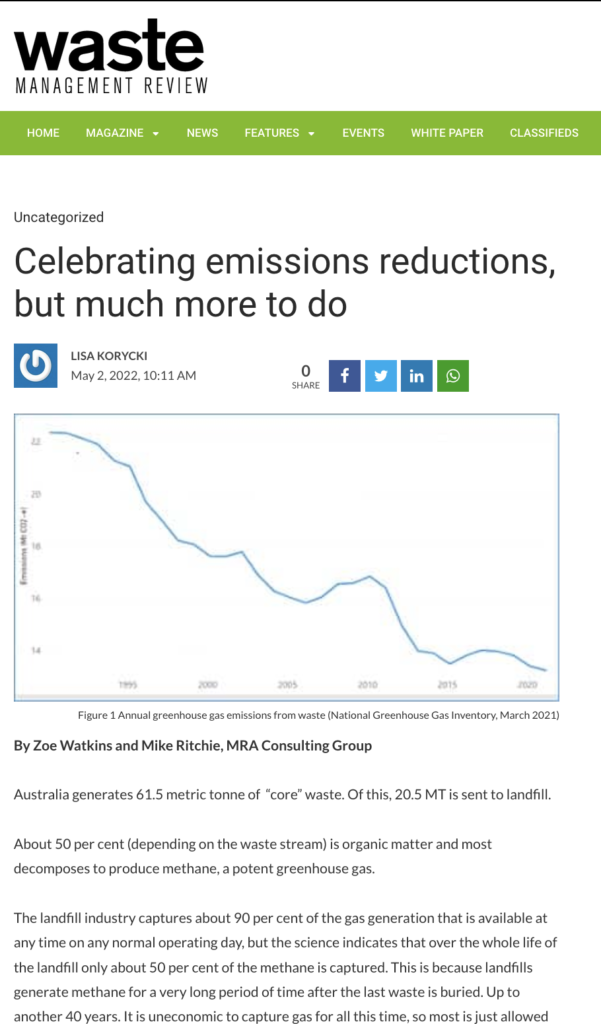Celebrating emissions reductions but much more to do
By: Zoe Watkins and Mike Ritchie, MRA Consulting Group

About 50% (depending on the waste stream) is organic matter and most decomposes to produce methane, a potent greenhouse gas.
The landfill industry captures about 90% of the gas generation that is available at any time on any normal operating day, but the science indicates that over the whole life of the landfill only about 50% of the methane is captured.
This is because landfills generate methane for a very long period of time after the last waste is buried. Up to another 40 years. It is uneconomic to capture gas for all this time, so most is just allowed to vent to the atmosphere.
The gas that is captured is burnt via a flare to destroy the methane (converting it to carbon dioxide which is still a greenhouse gas but much less potent) or in generators to produce electricity. In the future it may be used to generate hydrogen.
Of the estimated 11.2 billion tonnes of waste collected globally, the organic portion decaying in landfills contributes about 30% of all methane emissions. That is a lot. We know how to fix this problem, it just requires regulation (and money).
In Australia, landfills contribute about 3% of our national greenhouse gas emissions. That is about 11 MT/year. To the credit of the waste industry the emissions from waste have halved since the 1990s from 22 MT/yr.

In fact, the waste sector has reduced emissions at a faster rate than all other large emitting sectors in the economy including Stationary Energy, Transport, Industry and Agriculture. (We don’t include Land Use and Forestry, which has reduced emissions from 200Mt CO2-e in 1990 to zero in 2020 because they mainly just stopped cutting down trees.)
Agriculture achieved a 20% reduction from 90Mt in 1990 to about 70Mt in 2020. All of the rest have increased their emissions:
- Electricity – increased from 130Mt in 1990 to 160Mt in 2020
- Stationary Energy – increased from 65Mt in 1990 to 100 Mt in 2020
- Transport – increased from 60Mt in 1990 to 85Mt in 2020
- Industry – increased from 25Mt in 1990 to 30Mt in 2020
So in many senses the waste industry should be proud of its achievement. It has led the way in emissions reduction in Australia.
Tweet
I think the reason is that capturing and flaring methane gas is a simple and cost-effective mechanism to reduce emissions for large landfills. It can also be a revenue generator if used to generate electricity (or Australian Carbon Credit Units, ACCUs). Further, many EPA’s have mandated gas capture for both odour and climate change reasons.
There are expert gas capture companies operating in the Australian market such as EDL, LMS and LGI.
As such most large landfills have gas capture systems in place.
However, most small and regional landfills do not.
Without a price on carbon or a significantly higher (and stable) ACCU value, it is impossible for these smaller landfills to justify a gas capture system.
What is surprising is that EPAs who are looking for cost effective measures to reduce greenhouse gas emissions, have not turned their attention to these landfills. We know how to do it. We are practiced in it, and we have companies willing to do it. It is a simple matter of the economics not working.
So why not use the landfill levies to fund the establishment of landfill flares? Why not add a small surcharge to landfill gate fees to cover the cost of gas capture? Why not impose gas capture as a planning or licencing requirement? Why not declare methane a pollutant and regulate it?
There are plenty of mechanisms. Some more (un)popular than others.
Obviously, the best thing to do is not to generate methane in the first place. That means diverting the organics from landfill. Councils are doing that. Many State governments have now mandated separate collection of food and garden organics (FOGO) but it is still not universal. So, our landfills are still generating methane.
The fact that these emissions still occur proves the weakness in Australia’s climate change policies.
Zoe Watkins is the Administration Officer and Mike Ritchie is the Managing Director at MRA Consulting Group.
This article has been published by the following media outlets:




